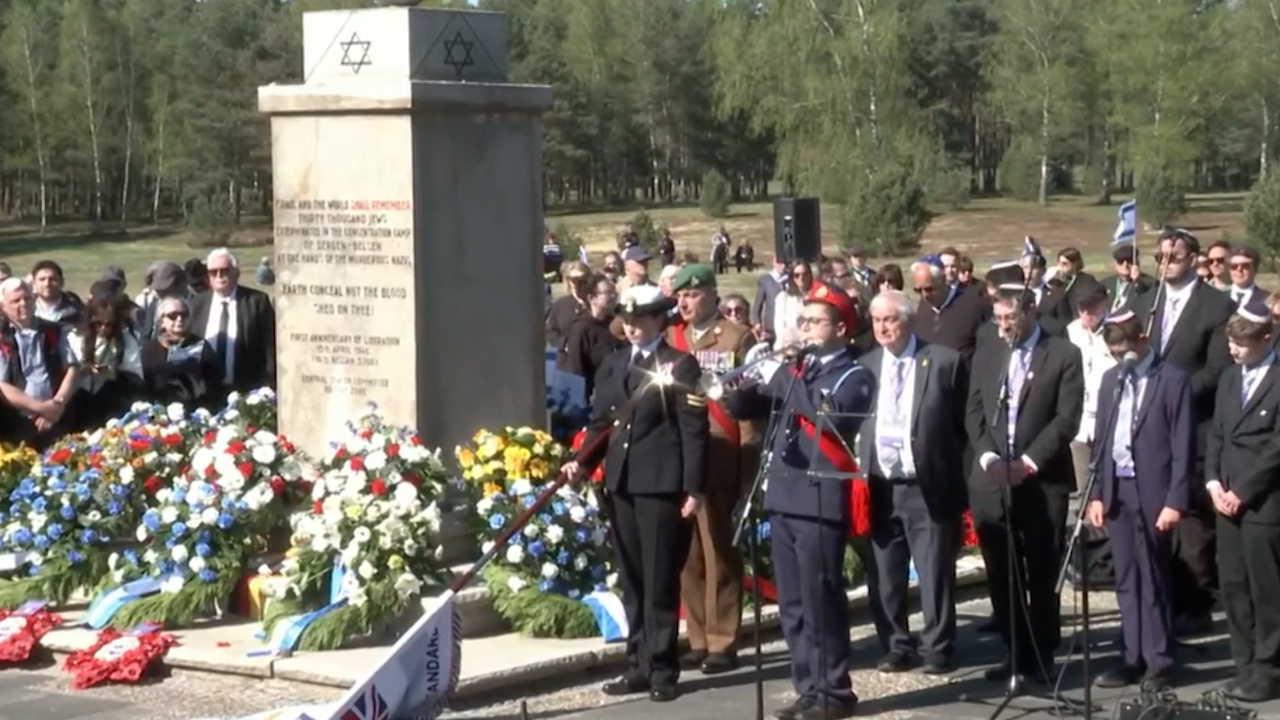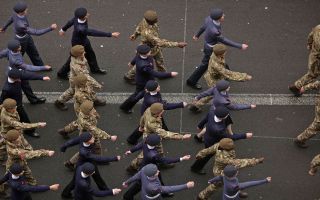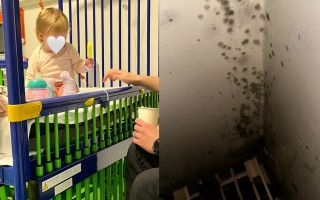Eighty years on, the British liberation is remembered at Bergen-Belsen
More than a thousand people from across the world gathered at Bergen-Belsen Memorial in northern Germany for the ceremony.
Among those attending was a British delegation led by AJEX – the Jewish Military Association – including survivors, descendants of liberators, cadets, veterans, serving Jewish personnel, young ambassadors from Holocaust education charities, Government officials and community leaders.
Bergen-Belsen was liberated by British troops on 15 April 1945.
- How a pair of gloves and a British soldier saved a child's life at Bergen-Belsen
- Bergen-Belsen: How British troops liberated the Nazi concentration camp
- Liberation of Bergen-Belsen: What British forces found inside the camp
Tens of thousands of people, mostly Jews, including diarist Anne Frank, were killed or died at the camp.
The sun shone as those gathered heard reflections from survivors, and wreaths were laid in front of the memorial's inscription wall.
At the main Obelisk, Britain's Deputy Prime Minister Angela Rayner reflected on the role of British forces and the enduring memory of the camp's liberation.

She said: "Walking through Bergen-Belsen this morning, I felt deeply the stillness, the silence, the weight of one of the darkest chapters in human history.
"Because on a day like this, 80 years ago, with the life and hope of spring around us, the first British liberators of Bergen-Belsen arrived to monstrous scenes of death, suffering and disease that finally exposed the true horror of the Holocaust to the world."
Ms Rayner continued: "I, for one, can only try to comprehend the enormity of the industrialised murder, to imagine the unimaginable horrors that for the survivors and the victims of the Nazis at Bergen-Belsen, they were forced to endure."
"The SS surrendered Bergen-Belsen because they said they were struggling to control an outbreak of typhus. But it was no accident.
"The troops of the Eighth British Army Corps found there was no purpose to this place, but suffering and death."
The deputy prime minister and Lord Coaker laid wreaths, along with AJEX veterans Ron Shelley and Ivan Sugarman, who were saluted by AJEX national chairman Dan Fox.
At a separate ceremony at the Jewish memorial, prayers were led by Chief Rabbi Sir Ephraim Mirvis and Rabbi Reuben Livingstone, with music from the Shabbaton Choir.
Wreaths were also laid by Ms Rayner, Countdown presenter Rachel Riley and Lieutenant Colonel Simon Soskin.
Mr Fox said: "Nothing could have prepared the men of the 11th Armoured Division for what they confronted as they entered Bergen-Belsen on 15 April 1945.
"Within its confines, they came face-to-face with the last belt of Hitler's genocidal conveyor. That day, British soldiers turned destruction into the beginning of repair and nightmares into the start of hope.
"We honour them all today: liberators, survivors and those who lost their lives."
Young people from the UK took part in an educational programme alongside German students, continuing efforts to preserve the memory of Bergen-Belsen for future generations.









